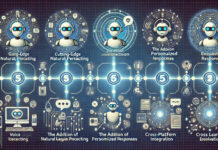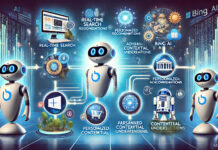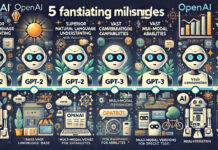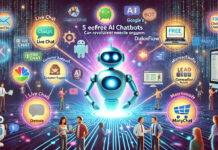Artificial Intelligence (AI) is reshaping industries, and software engineering is no exception. To stay competitive, engineers need to adapt and acquire new skills. This article discusses essential skills for software engineers in an AI-driven world and how to future-proof your career.
Grasping AI and Machine Learning
AI and machine learning drive technological advancements. Software engineers must grasp these concepts to build intelligent systems effectively. Key areas to focus on include:
1. Machine Learning Algorithms: Understand algorithms like decision trees, neural networks, and support vector machines. Learn libraries such as TensorFlow, PyTorch, and Scikit-learn.
2. Data Handling and Analysis: Master data manipulation, cleaning, and analysis. Use tools like Pandas, NumPy, and SQL for large datasets.
3. Model Training and Evaluation: Know how to train, validate, and evaluate machine learning models. Understand metrics like accuracy, precision, recall, and F1 score.
Essential Programming Skills
Solid programming skills are fundamental. Engineers should master languages and tools used in AI and machine learning:
1. Python: Python is popular for AI due to its simplicity and extensive libraries. Engineers should be proficient in Python.
2. R: Useful for statistical analysis and data visualization. It’s valuable for data-heavy projects.
3. Java and C++: Important for performance-critical applications. These languages help in developing efficient algorithms and real-time systems.
Cloud Computing and Big Data
Big data and cloud computing are transforming how engineers work. Familiarity with these technologies is crucial:
1. Cloud Platforms: Know platforms like AWS, Google Cloud, and Microsoft Azure. Learn about cloud-based services for machine learning, such as AWS SageMaker and Google AI Platform.
2. Big Data Technologies: Knowledge of Hadoop, Spark, and Kafka is essential for processing and analyzing large datasets.
Best Practices in Software Engineering
Following best practices ensures robust, scalable, and maintainable AI systems:
1. Version Control: Proficiency in version control systems like Git is crucial for collaborative development and code management.
2. Testing and Debugging: Skills in writing unit tests, integration tests, and using debugging tools are essential for software quality.
3. Agile Methodologies: Familiarity with Agile and Scrum methodologies enhances team collaboration and project management.
Soft Skills and Continuous Learning
In addition to technical skills, engineers need soft skills and a mindset for continuous learning:
1. Problem-Solving: Strong analytical and problem-solving skills are crucial for developing AI solutions.
2. Communication: Effective communication helps engineers collaborate with teams and explain technical concepts to non-technical stakeholders.
3. Continuous Learning: The tech industry evolves rapidly. Stay updated with the latest trends by attending workshops, taking online courses, and joining professional communities.
Ethical Considerations in AI
Understanding AI’s ethical implications is essential:
1. Bias and Fairness: Be aware of potential biases in AI models. Strive to create fair and unbiased systems.
2. Privacy and Security: Ensure data privacy and security. Implement robust measures to protect sensitive information.
3. Transparency: Build transparent AI systems. Explain decision-making processes to build trust with users and stakeholders.
Conclusion
Future-proofing your career as a software engineer in an AI-driven world requires a mix of technical skills, soft skills, and continuous learning. Master AI and machine learning, enhance programming skills, leverage cloud computing and big data, follow best practices, and consider ethical implications. Embracing these changes ensures a successful career in the evolving tech industry.
For more insights on future-proofing your career and staying updated with the latest trends in AI and software engineering, explore our series on career development and technology advancements.



